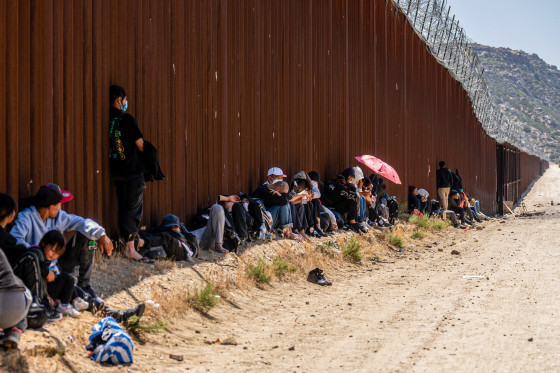
According to three people familiar with the plans, the incoming Trump administration is compiling a list of nations to which it may deport migrants if their home countries reject them.
According to the reports, the nations may include but are not limited to Grenada, the Bahamas, Panama, and Turks & Caicos.
The proposals may result in the permanent displacement of thousands, if not hundreds of thousands, of migrants in nations where they have no cultural ties and no acquaintance with the local population or language.
It is unclear if the migrants will be permitted to live and work lawfully in the nations where they are being deported. Additionally, it is unknown what type of diplomatic or economic pressure the Trump transition is putting on nations to cooperate, or what pressure it may exert after President-elect Donald Trump takes office in January.
As part of an arrangement with Guatemala to accommodate foreign nationals seeking asylum in the United States, Trump transferred migrants there in 2019 during his first term. NBC News and others at the time reported that under that program, asylum-seekers who had just entered the United States were placed on a plane bound for Guatemala without knowing their destination. The practice was stopped during the pandemic and persisted, albeit on a relatively modest scale, until early 2020.
The Trump administration was sued over the program by the American Civil Liberties Union and other pro-immigrant rights organizations. The federal court case is still underway.
The ACLU’s national office lawyer, Lee Gelernt, told NBC News, “We sued over this type of policy during the first Trump administration because it was illegal and put asylum-seekers at grave risk.”
Since federal court rules prohibit U.S. officials from detaining migrants permanently, migrants from Venezuela, Cuba, China, and other nations that are hesitant to accept back those who have immigrated to the United States have long been a problem. As a result, even when a judge has ordered their deportation, many migrants from those nations are ultimately allowed to enter the United States.
As part of what Trump has promised will be the largest deportation operation in American history, the new Trump administration plans to deport some migrants whose home countries are unwilling to accept them to third-party countries where they may have no connection.
The three individuals told NBC News that Trump also wants Mexico to take in non-Mexicans who are deported from the United States. The incoming administration is urging Mexico to accept deportation flights of non-Mexicans residing in the United States, in addition to admitting migrants who might be turned back at the border, as Mexico has been doing. According to the sources, it might not be simple to persuade Mexico to agree, and Trump would try to pressure Mexico to do so by threatening tariffs.
The next administration wants to deport migrants within a week of their detention, according to the sources, who also told NBC News that they think this policy will speed up deportations.
The American people have mandated that President Trump secure the border, stop the invasion of illegal immigration, and deport terrorists and dangerous criminals who compromise the safety of our communities. When asked about the plans, Trump-Vance transition spokeswoman Karoline Leavitt told NBC News that he will deliver.
The Trump transition team has already contacted Turks & Caicos, the Bahamas, Panama, and Grenada to negotiate an agreement whereby they would accept deportation planes from the United States, a source with knowledge of the arrangements told NBC News.
“The Panamanian government does not respond to assumptions and rumors,” stated Carmen Mora, a government spokesperson. We are unable to speculate in this area. Once the new US administration is in power, we would rather interact with it.
Requests for comment from representatives of the governments of Mexico, Granada, the Bahamas, and Turks & Caicos were not answered.
Note: Every piece of content is rigorously reviewed by our team of experienced writers and editors to ensure its accuracy. Our writers use credible sources and adhere to strict fact-checking protocols to verify all claims and data before publication. If an error is identified, we promptly correct it and strive for transparency in all updates, feel free to reach out to us via email. We appreciate your trust and support!
